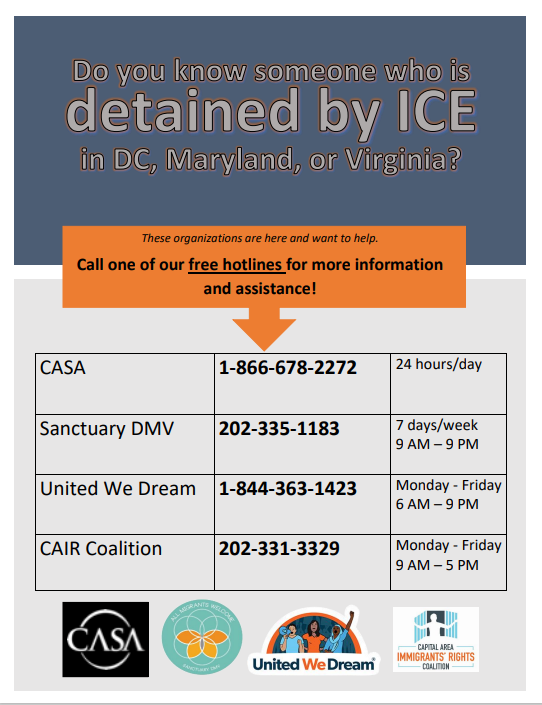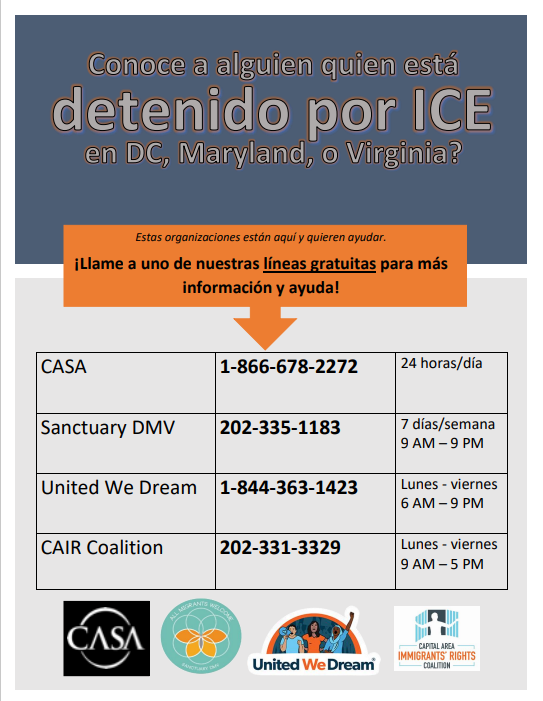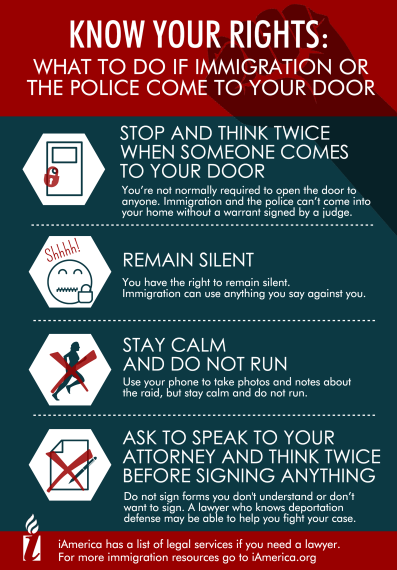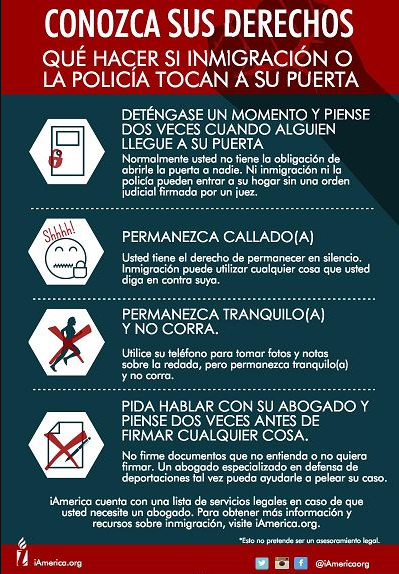Franconia Governmental Center Site
Board of Supervisors Meeting – Tuesday, May 21, 2024 
Decision-only on the Validation and Conveyance of the Property at the Franconia Governmental Center to the Fairfax County Redevelopment and Housing Authority (Franconia District).
Community Conversation Materials
Community Feedback
Questions? Email franconia@fairfaxcounty.gov.
Site Assessment Process for Franconia Governmental Center
Site ID > Land Transfer to County Agency (We are here) > Comprehensive Site Evaluation (Financial Feasibility–Site Design–Compatibility-Environment–Transportation- Scale–Land Use–Zoning)
Comprehensive Plan Amendment Review Process (Process Time Varies)
*Bolded bullets are community engagement opportunities
- Community Engagement
- Staff Analysis Meetings and Staff Report
- Community Outreach and Input
- Planning Commission (PC) Review and Public Hearing
- PC Recommendation
- Board of Supervisors Public Hearing
- Board of Supervisors Decision
Zoning Application Review Process (Process Time Varies)
*Bolded bullets are community engagement opportunities
- Community Engagement
- Staff Analysis Meetings and Staff Report
- Community Outreach and Input
- Planning Commission (PC) Review and Public Hearing
- PC Recommendation
- Board of Supervisors Public Hearing
- Board of Supervisors Decision
A potential concept for the redevelopment of the current Franconia Government Center property (6121 Franconia Road, Alexandria) is new multi-family housing to serve Fairfax County’s workforce. This idea could leverage private equity to build 120 new homes serving households earning an average 60% of the Area Median income, which is approximately $63,000 for an individual and $90,000 for a household of four in 2023.
As many as one in five of the units could have a preference for public safety, medical personnel and others who could qualify under the Fairfax County Magnet Housing program.
New Franconia Governmental Center
The land for this project will become available when the new Franconia Governmental Center opens in 2025. The 90,000-square foot building will include the Franconia Police Station, the Franconia District Supervisor’s Office, the Kingstowne Library and the Franconia Museum. Read about the groundbreaking held in March 2023.
Benefits of the project include:
- Extended number of county services
- Central location in the Kingstowne area
- Reduced environmental impact by co-location
Frequently Asked Questions
When development is being planned, what processes and ‘checks and balances’ are in place to ensure health and safety?
In Fairfax County, proposed development is review for conformance with the policies in the Comprehensive Plan and compliance with the Zoning Ordinance. The Department of Planning and Development staff coordinates with other departments and agencies on the review of Comprehensive Plan amendments and Zoning applications, evaluating land use compatibility, transportation, the environment, public facilities, open space and parks, schools, health and human services, housing and heritage resources.
Is the site safe for housing?
The safety of environmental and physical conditions of the site were considered and will continue to be part of the evaluation and design of the development during the land use and entitlement process.
Will the sidewalks be safe?
Ensuring community walkability and safe pedestrian experiences are core to any affordable housing redevelopment effort. While specific details for Franconia are still under development and subject to the land use and entitlement process, any plan will include sidewalks safe for pedestrian enjoyment. Pedestrian connectivity and safety are significant considerations in the evaluation of any residential development proposal.
Is someone going to do analysis of soil contamination and the effect of five gas stations before any decision is made to transfer the land?
The Franconia Government Center / Police Station currently has one operating regulated gasoline underground storage tank (UST). The Virginia Department of Environmental Quality has not yet been notified as to the date the UST will be taken out of service and properly closed. At that time, the owner of the UST (currently the Fairfax County Department of Vehicle Services) is required to conduct a closure assessment of the tank area. The information obtained during the tank closure will determine whether a subsequent environmental site assessment is required. The assessment, if required, would include field or laboratory sampling of the soil, soil gas, and groundwater in order to evaluate whether there are any risks to human health and the environment. The assessment could also identify if there has been an impact to the property from releases at nearby service stations. Once the assessment is completed, additional actions (if necessary) will be considered.
What are the challenges and constraints that prevent use of the Franconia Government Center site as the location for a relocated volunteer Fire Station (Land Swap)?
The Franconia Government site is a relatively narrow site, in comparison to the existing site. It also would have emergency apparatus responding directly onto Franconia Road. Having emergency apparatus respond directly onto a road like this presents a hazard for responders and other motorists. Ideally, stations are constructed so they enter a smaller road and enter the larger roadway at a signal-controlled intersection. In this case, Beulah Street provides that access from the current station.
Can the fire marshal explain the 'challenges' with accessibility to the project site?
The Franconia Government site is a narrow site without a traffic signal to allow fire apparatus to safely exit on to Franconia Road.
Is there published guidance on what fire support is required per populace?
The Fairfax County Fire and Rescue Department analyzes data to make informed decisions on timing and location of additional resources to meet the needs of the community.
Over 14,000 new units are planned in Franconia and along the Eastern boundary. What assurance do we have current support can cover this?
The Fairfax County Fire and Rescue Department analyzes data to make informed decisions on timing and location of additional resources to meet the needs of the community.
I have lived here my whole life and didn't realize until recently that Franconia and Kingstowne were volunteer stations and volunteer funded. Why are some volunteer funded and driven?
The Fairfax County Fire and Rescue Department originated from 12 volunteer fire departments who owned land, facilities, and were staffed by volunteers. The first paid county firefighters were hired in July 1949. As the County grew, additional stations were added that were not affiliated with volunteer organizations. All stations in Fairfax County are staffed with career staff. The volunteers supplement the career staffing.
How many firefighters have shown interest in living at this affordable housing development?
This site has not been approved for housing and has not been marketed for such interest.
What is the distribution of fire department calls between fire, medical, rescue and other calls?
In CY 2023, the Fairfax County Fire and Rescue Department responded to 125,211 incidents. 95,022 (76%) were medical, 21,309 (17%) were fire and 8,880 (7%) were public service calls.
Is there a need for large fire trucks to respond to medical calls when an ambulance is less expensive?
The Fairfax County Fire and Rescue Department's response to medical calls is determined by the staffing needed not the type of apparatus. In addition to providing the needed personnel for the medical emergency, larger apparatus may be the closest unit to an emergency.
What is the 5 year / 10 year plan for the fire station?
The Volunteer Fire Station is self funded with a self-determined building program.
Why don't you use land for expansion of fire station?
The current site of the Franconia Volunteer fire station is adequate for expansion.
Does the fire chief that spoke work with the volunteer fire department or the county fire department?
John Walser is an Assistant Chief with Fairfax County Fire and Rescue.
What are the response time measurements?
Answered during meeting in person Q&A.
What will the density be?
The proposed density will be confirmed through the planning and zoning process. Currently, the proposed development would include up to 120 affordable homes depending on the feedback and guidance provided through the land use and entitlement process.
What is the number of folks for a 120 unit complex?
The proposed affordable housing in Franconia would have 120 units, which would include a mix of 1-3 bedroom units. The number of residents per unit will vary and will be consistent with occupancy code requirements.
What impact would increase density have on the local community?
Increased density Impacts evaluated include site design, environmental features, tree preservation, supplemental vegetation, recreation amenity additions open space, location and height of structures, pedestrian and vehicular circulation (onsite and offsite) stormwater management.
What are the potential traffic impacts?
Impacts to traffic will be studied and mitigations will be incorporated into the land use and entitlement process. Studies will address issues such as parking, roadway improvements, and pedestrian improvements necessary to support additional development. The current site will leverage existing access to mass transit.
Has a traffic assessment been done?
A transportation assessment will be done during the Comprehensive Plan or Rezoning review stage. Transportation assessments are under review by staff for the adjacent Beulah Street nomination (CPN22-LE-003) which includes the Franconia Government Center site in the analysis and will be presented to the Franconia District Land Use Committee in the coming months. The presentations will be available on the Department of Planning and Development webpages for the Plan amendments following these meetings.
What are the potential infrastructure impacts?
Any infrastructure needs will be evaluated to ensure capacity for proposed development. From water needs to roadways, each aspect is carefully analyzed, and impacts of proposed developments are mitigated during the zoning process.
What is the process?
What is the project timeline?
Timeline of Franconia Governmental Center:
February 9, 2021: the Board of Supervisors (BOS) approved the advertisement for the public hearing regarding Conveyance of Property at the Franconia Governmental Center to FCRHA in Franconia District.
February 19 & 26, 2021: Advertisements for the public hearing scheduled for March 9, 2021.
March 9, 2021:
Fairfax County Board of Supervisors holds virtual public hearing meeting and authorizes the transfer of the land to FCRHA.
October 27, 2021:
Supervisor Lusk hosts meeting to discuss the potential for affordable housing at the Franconia Government Center and solicited feedback from the community. This feedback from the community was incorporated into the development for a Request for Proposals.
February 3, 2022: FCRHA issues a Request for Proposals for the redevelopment (RFP #2000003477) under the PPEA Act of 2002. The RFP sought proposals from qualified Developer to develop affordable multi-family housing on the County-owned property at 6121 Franconia Road, Alexandria, Virginia.
August 29, 2023: Fairfax County Department of Procurement and Material Management posts public documents required in advance of forthcoming public hearings on project. These include an unexecuted interim agreement with SCG Development Partners to enable the firm to examine project feasibility at their own expense, as well as the developer’s proposal.
January 23, 2024: Fairfax County Board of Supervisors holds public hearing to validate and convey Franconia Governmental Center property to the FCRHA. A motion was made to defer action.
March 5, 2024: At the Board of Supervisors meeting, Supervisor Lusk announced that he is convening three community meetings, in partnership with a variety of County agencies including the Department of Neighborhood and Community Services. Following comments, Supervisor Lusk moved that the decision-only to Validate and Convey Property at the Franconia Governmental Center to the Fairfax County Redevelopment and Housing Authority be deferred until May 21, 2024.
April 13 and April 22, 2024: Fairfax County hosts Community Conversations at James Lee High School to get community input on the Franconia Governmental Center site.
May 6, 2024: Fairfax County hosts Community Conversation at James Lee High School to share the themes from the April meetings and have community reflect on those themes.
Resources: See Board of Supervisors January 24, 2024 Board Package, page 519
How are new affordable housing locations chosen?
Fairfax County has – and continues to grow – affordable housing opportunities in all zip codes of the county. This ensures that people can live in the same location where they work; develops a robust workforce; and maintains a thriving economy.
Locations are selected in a myriad of ways:
- Neighborhoods of opportunity: Fairfax County seeks to create affordable housing in places where it is most needed, and where there is greatest opportunity for people from the entire income spectrum to live where they work. One example is the forthcoming Exchange at Spring Hill Metro, which will bring 516 affordable homes to the heart of Tysons Corner.
- Government-owned land redevelopment opportunities: In the case of Franconia, an opportunity exists to convert underutilized, county-owned property into affordable housing with amenities the entire community will enjoy. Utilizing government-owned land helps support the development budget for lower-cost housing and makes developments more competitive in receiving tax credit equity. The FCRHA will always maintain ownership and negotiates long-term lease arrangements with developers who, in turn utilize financing to create quality homes and community amenities.
- Opportunity-based: Projects are planned based on opportunities presented to the FCRHA, which are evaluated for viability and consistency with Fairfax County goals.
- Preservation opportunities: FCRHA supports the preservation of established affordable homes. Preservation is facilitated by the FCRHA through a variety of means, including physical preservation and rehabilitation of a property, or redevelopment that includes replacement of existing units onsite while retaining affordability.
What other development projects are in the queue and/or under consideration in the Franconia area?
Cumulative impacts of recently adopted and currently active planning studies will be evaluated during the planning stages on topics including schools, multimodal transportation, parks, and public facilities. The 2023 Comprehensive Plan Work Program lists and prioritizes by tier the current Plan amendments that the Department of Planning and Development is considering. Currently, staff is reviewing Tier 1 Plan amendments in the Franconia District.
The Planning and Zoning Viewer application is a tool that the public can use to research approved and pending zoning applications.
What amenities will be developed with affordable housing, and who can use these amenities?
During community conversations on April 13 and 22, residents shared ideas for potential amenities. These included green space and playgrounds, streetscape improvements, and more. During the May 6 conversation, attendees prioritized amenities if the redevelopment includes affordable housing. These amenities will be considered for development with affordable housing and are intended for the entire community to enjoy.
How can this be a data driven decision that engages the community etc. if the first step is to transfer the property to the Dept of Housing?
The transfer of the property will allow for the evaluation of the site's feasibility for housing and provide a process for continued community input.
Please be honest and forthright! Once this land is transferred to the Housing Redevelopment Authority, the decision to redevelop the property to housing is practically irreversible and the whole process you discuss is merely refinement of a decision process.
If following the public process, the housing use is not executed the land will be transferred back to the Board of Supervisors for other use considerations.
Is the proposed redevelopment consistent with One Fairfax policy?
The proposed redevelopment of the Franconia Governmental Center – and all potential uses of county-owned land and facilities – have equity baked-in at the beginning. Community conversations will provide more public input, along with the planning and zoning process.
Who will live in the affordable housing? How much money will they make?
The potential affordable housing would serve households with a mix of incomes, but, on average earning up to 60% of the Area Median income, which is approximately $63,000 for an individual and $90,000 for a household of four in 2024. This could include:
- Individuals relying on fixed incomes, including seniors and people with disabilities.
- Single parents striving to support their families on a single income.
- Service industry workers, administrative personnel, social workers, medical support staff, and public service employees. The workers who are the heart of our area’s economy and community.
- As many as one in five of the units could have a preference for public safety, medical personnel, and others who could qualify under the Magnet Housing Program. The chart below shows the possible range of incomes served.
|
Family of |
Area Median Income (AMI) 2024 |
||
|
|
80% AMI |
60% AMI |
40% AMI |
|
6 Person |
$143,600 |
$107,700 |
$71,800 |
|
5 Person |
$133,680 |
$100,260 |
$66,840 |
|
4 Person |
$123,760 |
$92,820 |
$61,880 |
|
3 Person |
$111,440 |
$83,580 |
$55,720 |
|
2 Person |
$99,040 |
$74,280 |
$49,520 |
|
1 Person |
$86,640 |
$64,980 |
$43,320 |
Area Median Income (AMI) is data used to determine housing eligibility and is calculated annually by the U.S. Department of Housing and Urban Development (HUD). Information on AMI can be found on the HUD website.
Who lives in affordable housing? How do they apply?
Households must meet the appropriate Average Median Income (AMI) eligibility requirements as defined by the applicable financing programs.
The Fairfax County Department of Housing and Redevelopment administers multiple affordable housing programs. These include federal, state, and locally funded rental assistance programs as well as local rental homes. The FCRHA also funds development of affordable homes.
Potential affordable housing in Franconia would likely utilize a private developer to develop and manage the property. Qualified individuals will apply directly to the on-site management company. It is a combination of these techniques that help finance the construction and operations.
Does adding affordable housing impact crime rates?
According to HousingForward Virginia, there is no correlation between safe, decent, affordable housing and crime. Studies show that crime is more often due to community disinvestment, overcrowding, and a lack of jobs and community services.
A study conducted by the University of California Irvine School of Social Ecology found that affordable housing decreased crime and increased property value in Orange County, CA.
According to the National Low Income Housing Coalition, “Researchers agree that high crime rates in areas with lots of public housing are not due to the housing itself, but more likely to the lack of opportunity in the area in which the housing is built. Public housing in neighborhoods with access to employment, commerce, good schools, and other community institutions have crime rates similar to the rest of the neighborhood.”
What is the average rent for someone living in an affordable home?
The rent limit (at 60% AMI) for a two-bedroom affordable home is $2,089.
How can I share my feedback, opinions and ideas?
Fairfax County solicited feedback, opinions, and ideas during a series of community outreach sessions in April and May. As the development moves through the forthcoming land use and entitlement process, the public will have additional opportunities to provide feedback through meetings and hearings.
Please email franconia@fairfaxcounty.gov with immediate inquiries.
When do you use public signage to inform of a public engagement? Where is this posted?
The Department of Planning and Development posts yellow board signs on properties public hearings with the Planning Commission and Board of Supervisors.
Why was the transfer to Housing Dept in 2021 without any public input and now in 2024 we're having a rushed period of 'community input?
Public input opportunities have been incorporated since February 2021. A timeline of activity is provided in the housing section of the FAQs.
Now that you have consolidated the comments, is the majority of responses for - or against - the proposed use of the property in question?
There are many who have indicated that they are not supportive of housing at the site. There are many who have indicated that they are in favor of continuing the process of evaluating housing at the site.
Why are amenities being discussed when necessities have not been prioritized?
The community conversations held on April 13 and April 22 were supplemented by an online community input portal which provided individuals the opportunity to identify their perspective on priorities for the site. The results are posted on www.fairfaxcounty.gov/topics/Franconia-Governmental-Center-Site.
Your point about Franconia District Park missed the mark. The better question is what do the residents of Franconia need/want that is missing.
The community shared their perspective during the community conversation discussions held in April 2024. The summary document is available on the project website.
Why was this question not asked: Do you want affordable housing built on this property? Yes or no?
Questions were framed to give respondents an opportunity to elaborate on their answers and promote conversation.
The BOS is not representing the residents by authorizing documentation to convey the Franconia Government Center for specific use as affordable housing development. Show us the documented demographics that support this.
Countywide Strategic Plan - Housing and Neighborhood Livability
The 2022 Health and Human Services Needs Assessment
You said we would be polled on amenities - not on alternate uses. Why not? Wasn't that the topic?
The community conversations held on April 13 and April 22 in addition to the online poll asked the community to identify desired amenities and alternative uses they would like to see at the site. The results are posted on the website project page.
What does Sup. Lusk have against Koinonia? He excludes and ignores them. They were mentioned more often than the Fire Dept. yet they were not mentioned at all.
Nonprofit space was identified as an important community amenity with a housing development. This ancillary use could be considered for collocation during the zoning process. See the process.
Will there be an opportunity for comment at the 5/21 BOS meeting to revote on the transfer to the Housing Authority?
Written comments may be submitted to the Clerk to the Board of Supervisors in advance of the meeting at ClerktotheBOS@fairfaxcounty.gov.
Can you please let people know, clearly, that the 5/21 vote does not rezone the area. That the transfer is necessary to initiate the type of studies people want?
The May 21, 2024 ,BOS decision-only matter considers the validation and conveyance of the property to the Redevelopment and Housing Authority. If approved staff will continue the site feasibility and evaluation process. See the process flow chart.
Isn't it true new museum is totally virtual? Are all exhibits gone?
The Franconia Musuem will contain over 700 square feet and include exhibit space.
It seems that these meetings keep pushing for what 'amenities' are needed with the affordable housing, but is the Fairfax BOS even considering not having the housing there, putting the space to community use?
The presentation at the May 6, 2024, meeting demonstrated that numerous community facilities exist and are under construction in close proximity to the site. Nonprofit or other ancillary community serving uses could be collocated with housing.
How are all the other supervisors going to get this info? When? The night of the May 21 BOS meeting or earlier for them to have the time to absorb it and ask questions etc.
Each office of the Board of Supervisors has been receiving e-mail and/or written correspondence on this item. Updates have also been provided at BOS meetings and via email correspondence. In addition, each office has been encouraged to review the project page that has served as a good source of comprehensive information.
We offered volunteer labor and donations to build the playground and remodel the interior. Is that an option you rejected?
Staff is unfamiliar with this proposal.







 SHAPE the Future of Aging is a strategic plan to make Fairfax County a better place to age, for older adults to live safely, independently, and with dignity. SHAPE is an acronym that includes five areas of focus:
SHAPE the Future of Aging is a strategic plan to make Fairfax County a better place to age, for older adults to live safely, independently, and with dignity. SHAPE is an acronym that includes five areas of focus:


